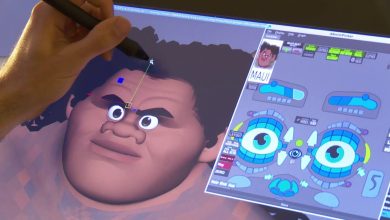The Relevance of AI in Education

The introduction of artificial intelligence (AI) technology in education has significantly impacted the learning process. And today, these AI tools used by academic sites, research centers, and information banks continue to change how learning takes place.
AI is becoming a mainstay in all educational sectors, aiming to simplify and diversify learning. Still, some people are wary of its sustained relevance. If you are one of them, let this article be your introduction to the purpose of AI in the global educational sector.
Table of Contents
Enhances Personalization
Tutors and students benefit equally from the use of AI technology. It helps instructors identify which topics and courses need to be reviewed by evaluating the students’ learning capacity. AI gives teachers real-time data to design the best possible curriculum for their kids.
AI technology also helps instructors identify students who are not performing well and their areas of weakness. By knowing the cause of students’ poor academic performance, they can take the proper steps to correct them.
Thanks to AI-powered learning tools, students also benefit from using instructional software and admission essay writing service with best price sites tailored to their needs. The platforms use data to adapt to each student’s requirements, focusing on areas of weakness and rehashing things the students don’t understand.
Improves the Speed of Responses
As a student, asking a question and getting an answer after three days can be annoying. In some cases, this can hamper their self-confidence and desire to learn. For the instructors, answering the same question from curious students multiple times can be tiring.
But AI tools present a lasting solution to this problem. The students can use chatbots to ask questions and get responses in seconds. Also, search engines and educational sites simplify learning by providing verifiable answers to research questions.
This system gives educators more time to create better study plans, and students also benefit since they spend less time looking for solutions or waiting for someone to respond. Thanks to these AI solutions, students can prepare for classes independently.
Helps Teachers Automate Tasks
AI has been employed in various businesses to automate mundane tasks. Teachers who don’t use AI tools spend time organizing courses, grading papers, and performing administrative duties.
Adopting AI is the best solution to cut down the instructors’ workload. It also reduces the possibility of burnout and ensures they are mentally prepared to educate their students.
With the world going digital, institutions need to embrace AI, letting teachers tone down their increasing engagement with administrative tasks. AI technology will allow them to breathe new life into the role they are passionate about — teaching.
Highlights the Challenges Students Face
Artificial Intelligence is often seen as a threat to human labor. But rather than competing with humans, artificial intelligence is helping them work faster and identify areas for improvement.
When paired with a quality teacher, AI technology can pinpoint where students fail and show if school performance is up to the required level. For example, artificial intelligence will reveal the students performing poorly on tests and the concepts they find challenging.
Assessment from artificial intelligence helps tutors know concepts they need to re-teach, areas to emphasize, and the students needing a unique teaching approach. And by filling in those gaps, all students can learn on a level playing field.
Increases the Relevance of Recommendations
As the person in charge of students’ grading and assessment, a teacher develops significant knowledge of their pupils over the school year. Such knowledge may cause a feeling of empathy, likeness, and dislike, leading to subjective grading.
But with artificial intelligence, recommendations are slowly regaining relevance. Besides, machine learning algorithms can offer a bias-free environment for learning. And most importantly, AI tools can examine the record of students, eliminating the possibility of bias or prejudice.
Provides Additional Learning Materials for Students
Thanks to AI technology, study programs are beginning to fit the needs of individual students. When children need extra aid and support outside the classroom, teachers can save a lot of time using AI tutors.
Learning algebra, geometry, and other mathematical concepts may be challenging for students. But with AI tools like Wolfram Alpha, students can get instant solutions to pressing problems online.
Besides, students can gather useful information from AI-based virtual assistants and chatbots. These chatbots have become powerful tools to boost students’ understanding of concepts. They also assist students in developing existing and new skills and reinforcing areas where they face challenges.
Conclusion
Artificial intelligence has brought about unprecedented changes in education — it has redefined how assessments are given, the grading system, and overall learning. The technology has helped teachers and students step up by providing them with the necessary support through study materials and learning aids.



